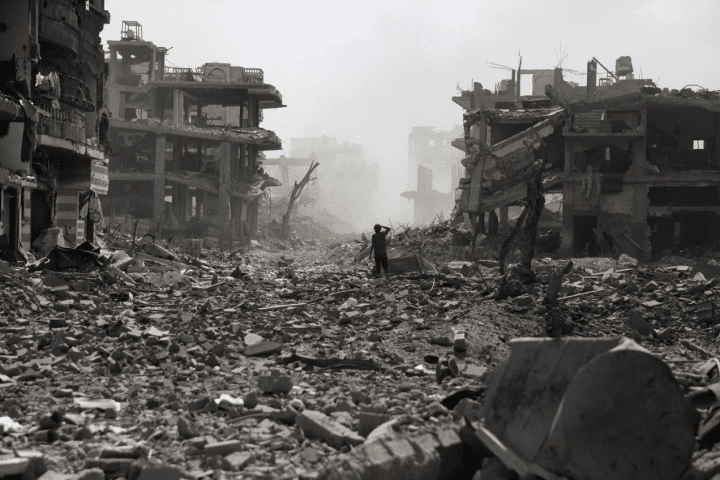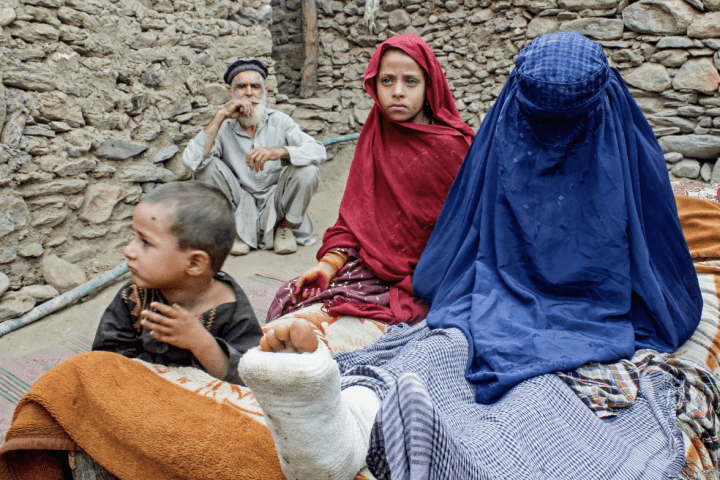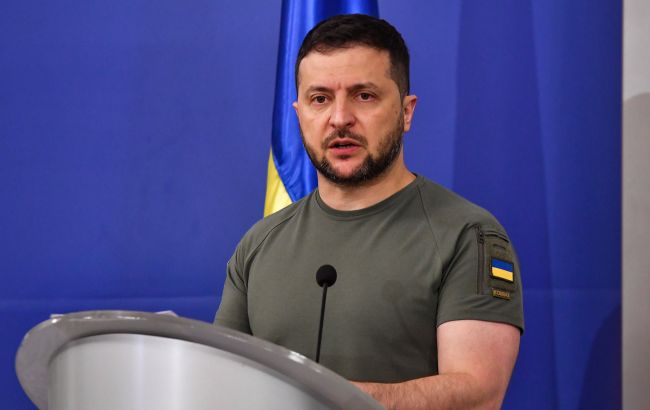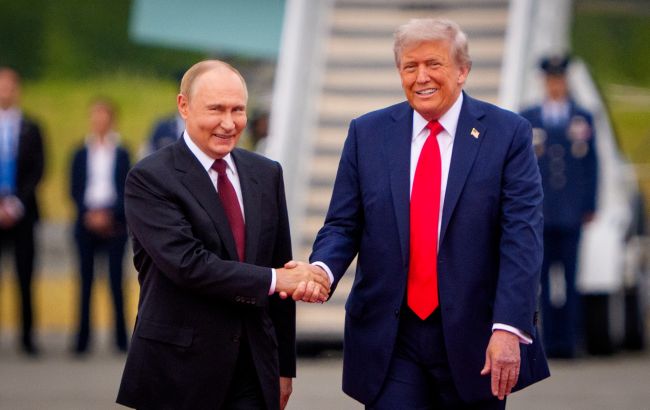China’s President Xi Jinping marked the 80th anniversary of the end of World War Two with a sweeping military parade in Beijing on Wednesday, projecting power at home and abroad while flanked by Russia’s Vladimir Putin and North Korea’s Kim Jong Un.
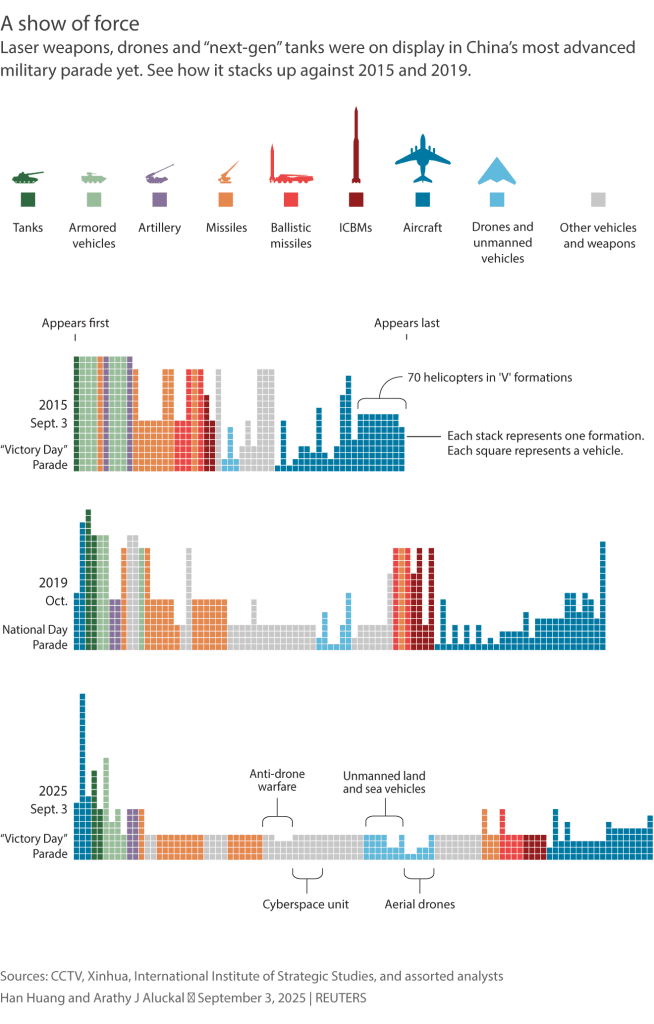
The optics contrasted sharply with Xi’s first parade in 2015, when he stood alongside his predecessors to emphasize continuity. A decade later, having consolidated power into a third term, Xi presented himself as the centerpiece of a new geopolitical axis. His allies on the podium underscored growing alignment with Moscow and Pyongyang at a time of worsening ties with Washington.
The parade capped a week of high-level diplomacy that included Xi’s summit with Indian Prime Minister Narendra Modi and meetings with other Shanghai Cooperation Organization leaders. Analysts said the events aimed to demonstrate Xi’s stamina, deflect attention from slowing growth at home, and reinforce nationalism as a source of legitimacy.
Caught on a hot mic before the parade, Xi and Putin mused about organ transplants and the possibility of living to 150, a moment that highlighted Xi’s elder-statesman image. Dressed in a Mao-style suit, Xi stood in visual contrast to his black-suited counterparts. His premier, Li Qiang, was relegated to lower-level meetings, while powerful party official Cai Qi handled key encounters with foreign leaders, underscoring shifts in the balance of influence within Beijing’s elite.
Many of the leaders in attendance came from countries hit by U.S. President Donald Trump’s tariffs. India, for example, remains a buyer of Russian oil despite U.S. sanctions. A symbolic moment came when Modi and Putin walked hand-in-hand to greet Xi, highlighting Washington’s difficulties in drawing India closer to its orbit.
Trump himself praised the Beijing showcase as “beautiful” and “impressive” but added a barbed comment accusing China of conspiring with Putin and Kim against the United States. The Kremlin dismissed the suggestion, calling Trump’s remarks ironic.
For Beijing, the week reinforced its pitch to the Global South as a reliable partner offering investment and development alternatives to the U.S. “China’s message as a more reliable, stable alternative to the United States is resonating,” said Eric Olander of the China-Global South Project.
Still, experts noted that entrenched disputes, from territorial frictions to trade imbalances, remain obstacles. India’s distrust of China will not vanish after one meeting, and Xi faces the challenge of managing a diverse, sometimes fractious coalition.
As he looks toward a possible fourth term in 2027, Xi is seeking to cement his place as China’s most powerful leader since Mao Zedong. The question, analysts say, is whether his strategy of nationalism and global outreach can offset the mounting strains of unemployment, real estate woes, and slowing economic momentum at home.



